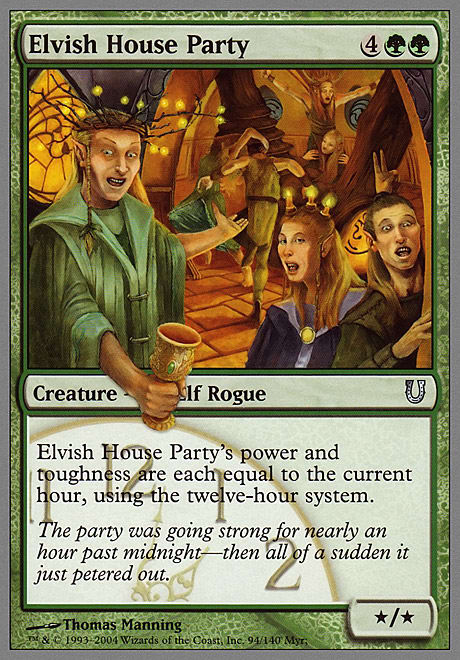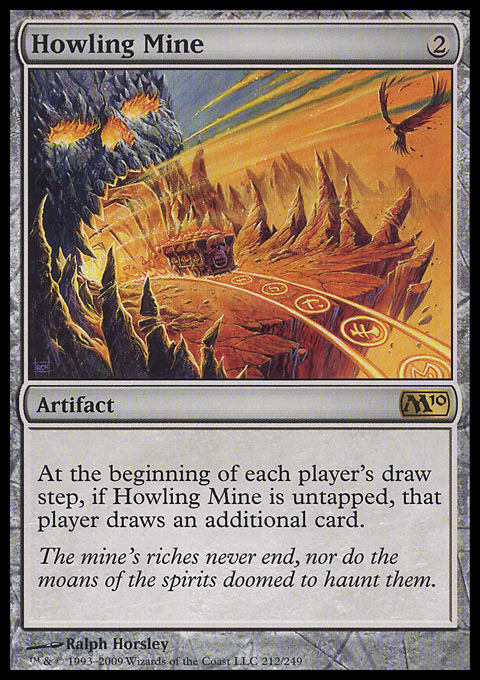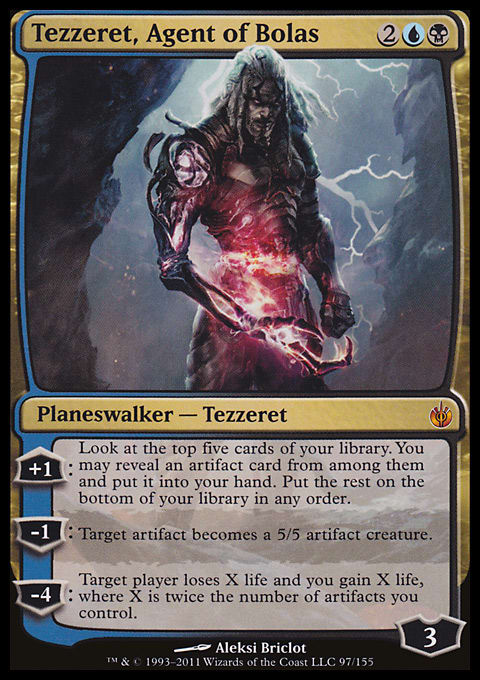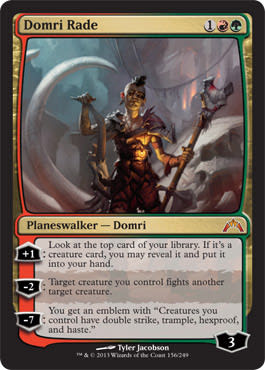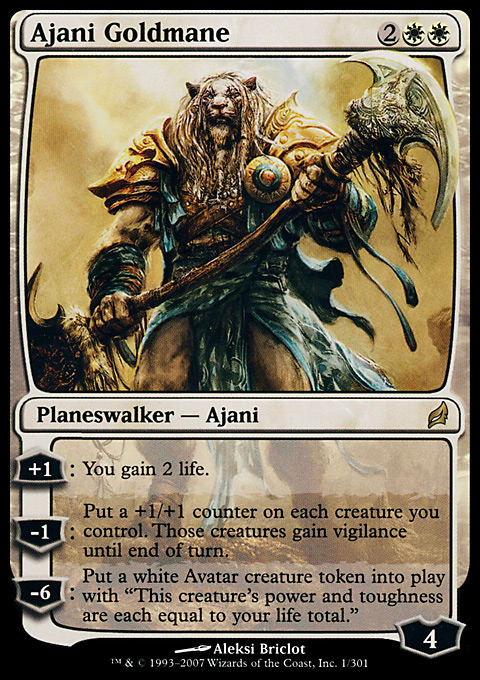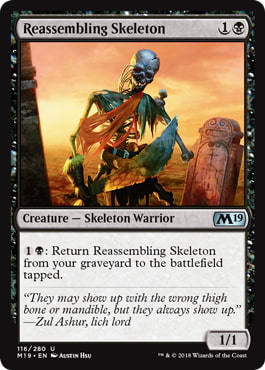Magic certainly falls into the category of games in which house rules are encouraged. Not only does Wizards of the Coast run a weekly column that regularly features house rules (Serious Fun, for the uninitiated) but they also once posted a House Rules Compendium.”While this compendium contains some interesting re-posts of old Duelist articles, isn’t it high time that the GatheringMagic community constructed its own compendium of house rules? We are celebrating the 20th anniversary of Magic this year after all, and there are loads of house rules out there worth compiling.
Here’s a brief list to start us off. At the end of this post, I’ve included a form to collect your house rules. Fill it out as many times as you’d like. Next week, I’ll share the results, and together, we’ll build GatheringMagic’s Compendium of House Rules.
Nine-Card Hand
Players may begin the game with nine cards in their hands. The maximum hand size for the duration of the game is nine. If you're crunched for time but want to fit one more game in, this rule gets things moving a bit faster. A variation of this rule also works well when teaching someone new how to play—let the player draw nine, and everyone else only draws seven. This decreases the likelihood of that player experiencing mana screw and ensures that he or she is able to play some cards right away in the first few turns.
The Virtual Howling Mine
I learned about this house rule via an article by Chris Romeo on StarCityGames.com. Then, I found it again on MTGSalvation under the name “Double Draw.” (I like Romeo’s name for it better.) Basically, everyone gets to draw an extra card during his or her draw step—a cousin to the Nine-Card Hand rule.
Quick-Draw
Here’s another one I picked up from the aforementioned MTGSalvation article: “If you have no cards in your hand at the end of your turn, draw seven more.”
Tutor Up Those Planeswalkers
The flavor behind this house rule comes from the nature of planeswalkers in the multiverse. According to WotC:
This is all well and good, but most players want their planeswalkers to use their freedom to travel into the game and help them win. So unless you can afford to own four copies of every planeswalker, how do you go about calling them across the multiverse and into your game?
Enter this house rule: Pay the converted mana cost of any planeswalker in your deck and roll the planar die. If you role either symbol on the die, you may search your deck for any planeswalker with a mana cost that matches what you paid, reveal it, and put it into your hand. (If you don’t own a planar die, rolls of one and six will suffice.)
I like this rule because it adds a level of flavor to the game. You are calling for the help of a loyal friend, but in the heat of battle, your call may not always make it through the æther of the multiverse. Also, activating it via die roll it opens up new interactions with cards such as Clam-I-Am and Goblin Bookie.
Granted, there may be other, easier ways to tutor up a planeswalker (cards like Demonic Tutor and Diabolic Tutor or simply using a play set), but not everyone has access to these cards. Also, many casual players only own one copy of a given planeswalker.
Mulligans, Mulligans
There is a lot of great reading out there about mulligans. Everyone has an opinion on it. My favorite house rule for mulligans is that the first mulligan is always free no matter what format you are playing or how many players there are in the game. After that first mulligan, normal rules apply. This just helps players avoid mana screw because of a poor shuffle, which is absolutely no fun.
What's a Sideboard?
My playgroup doesn't use sideboards. We allow each other to make sideboard substitutions with any card we have on hand between games. For us, it’s not a big deal. I suppose someone could abuse this freedom and sub in cards that would completely hose their opponents, but I've found that when I'm playing with friends around the kitchen table, that hardly ever happens.
Almost Tribal Wars
Have you ever heard the old adage? “Almost is only good in horse shoes and hand grenades.” I think “almost” works well in the Tribal Wars format, too. The official rules for building a Tribal Wars deck state, “One-third of every deck must be of a single creature type.” Or in other words, twenty out of sixty cards need to share a creature type. With my group of players, we don't really adhere to that rule very strictly. If my friend comes to the table with a Zombie deck that only has eighteen Zombie cards and two copies of Reassembling Skeleton, it's not going to bother me. To us, the Tribal Wars format is all about the spirit of the deck—not the numbers.
The Untouchable Fractured Powerstone
This rule only applies if you're playing Planechase. Everyone starts the game with a Fractured Powerstone on the table, and they are all untouchable: They can't be destroyed, targeted, stolen, or anything else.
My play group has done this a number of times, and I really like it. It gives everyone a ramp of 1 colorless mana on turn one, and it gives everyone an additional free die roll. We've found that we get to see a lot more planes and phenomena in action with this rule in effect. When we play Planechase, my group is usually happiest when big, crazy interactions happen. Using Untouchable Powerstones is a great way to increase the number of massive plays that occur in a Planechase match.
Now it’s your turn! What house rules do you like to use with your group of friends? Some of you have been playing casual formats for so long you probably know fifty or more rules (Abe Sargent, I’m looking at you). So, fill in the form below as many times as you’d like. The more house rules, the merrier. Next week, I’ll post a complete list of everyone’s house rules.













